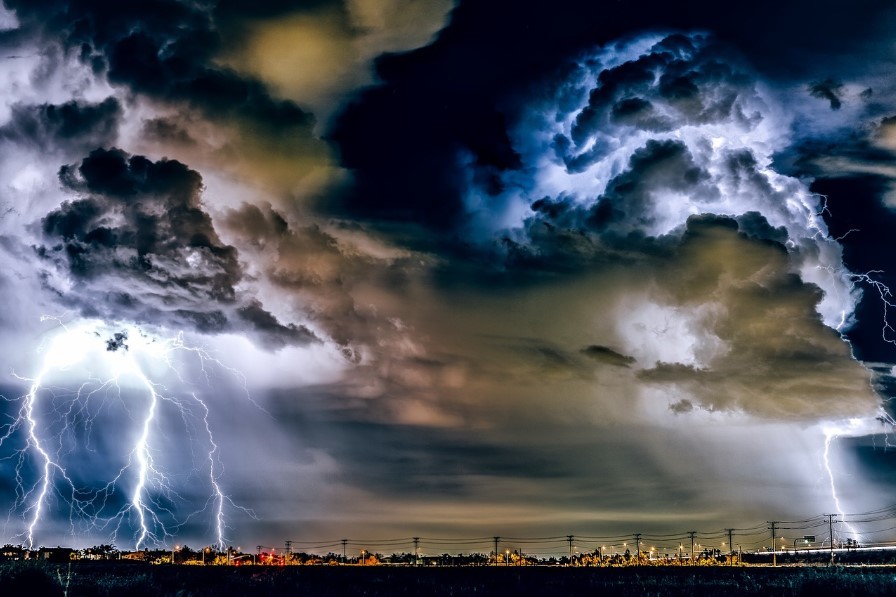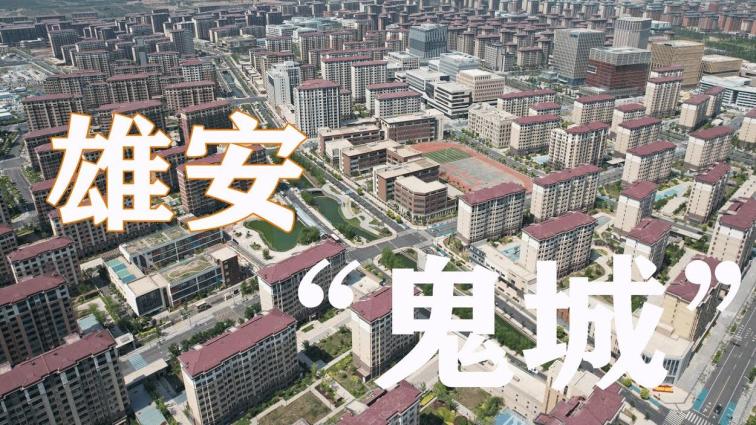Heavenly signs and phenomena often correspond to the rise and fall of dynasties, the fortunes and misfortunes of the world, and the blessings and disasters of mankind. (pixabay)
[People News] On July 21, Rana Mitter, Professor of the U.S.-Asia Relations Chair at Harvard University’s Kennedy School, wrote an article in Up Media recommending a new book by Robert Suettinger, Senior Advisor at the Stimson Centre. The book, The Conscience of the Party: Hu Yaobang from the Chinese Civil War to Tiananmen, recounts the story of former CCP General Secretary Hu Yaobang.
Mitter states that Suettinger drew on extensive sources—including internal CCP documents that are no longer publicly accessible—to write this deeply researched and rigorously verified biography, portraying Hu Yaobang as a central figure in rebuilding China after the Cultural Revolution.
In official CCP narratives about the reform era, descriptions of Hu Yaobang have largely been erased. However, unlike former General Secretary Zhao Ziyang—who was purged for opposing the military crackdown on the Tiananmen student movement in 1989—Hu Yaobang has not been completely written out of history.
Mitter believes Suettinger accurately captures Hu Yaobang’s extraordinary character traits, which ultimately led him to drift further apart from many of his fellow CCP leaders.
Suettinger writes in the book: “For Hu, reform meant acknowledging that certain things had gone wrong and urgently needed to be changed”—and these problems “were far more than just about economic performance and competitiveness.” Nevertheless, Hu Yaobang remained firmly committed to the communist system, advocating that the regime should show more humanistic concern for suffering.
In 1981, the situation reached a critical juncture. At the time, Hu Yaobang was tasked with drafting the Resolution on Certain Historical Issues Since the Founding of the PRC. This document was a major ideological undertaking and addressed a politically explosive question: how could the CCP denounce the Cultural Revolution without destroying the historical legacy of Mao Zedong, the founding father of the party?
Hu Yaobang leaned toward a more radical stance, but his ideas alarmed then-Chairman of the Central Military Commission Deng Xiaoping, the most powerful figure in the party. Deng abruptly removed Hu from the drafting committee and reassigned the task to more ideologically orthodox figures, such as then-Minister of Propaganda Deng Liqun and Politburo Standing Committee member Hu Qiaomu. At the same time, Hu Yaobang was sent to Taishan in Shandong for “forced rest and recuperation.”
The final rupture occurred on January 10, 1987. At an internal party meeting, Hu Yaobang’s liberal tendencies and loyalty were the main focus of a carefully orchestrated, round-robin attack. One of his critics, Deng Liqun, spoke for several hours. Dozens of senior CCP officials took turns attacking him. Hu Yaobang later recalled that they sought to “humiliate me, criticise me, until I stank to high heaven.”
In Deng Liqun's Memoirs – Twelve Years of Spring and Autumn, Deng Liqun provides a detailed account of that party disciplinary meeting.
In mid to late December 1986, a wave of so-called “bourgeois liberalisation” briefly swept through the country. A small number of university students in cities like Hefei and Beijing took to the streets in protest, holding banners opposing the leadership of the Communist Party and the socialist path. In some places, there were incidents of traffic disruption and violations of public order regulations.
On the morning of December 30, 1986, Deng Xiaoping held a conversation with Hu Yaobang, Zhao Ziyang, Wan Li, Hu Qili, Li Peng, He Dongchang, and others, stating that the student unrest was a major event. Deng further said: “The reason these people are acting so boldly, it is said, is because there’s a layer of protection inside the Party Central.” This was an implicit reference to Hu Yaobang.
Following Deng Xiaoping’s comments, Hu Yaobang immediately responded. On January 2, he wrote a letter to Deng, acknowledging his mistakes and engaging in self-criticism. He also expressed that he was no longer suitable to serve as General Secretary and was willing to step down from the position.
On January 6, Deng Xiaoping held another conversation with Hu Yaobang. Around that time, it was Deng who proposed, and with discussion among the Politburo Standing Committee, they decided to hold an internal party life meeting to address the issue of Hu Yaobang. The purpose was to criticise Hu’s mistakes and to have him conduct self-criticism at the meeting.
The Standing Committee tasked Zhao Ziyang, Bo Yibo, Yang Shangkun, Wan Li, and Hu Qili with organising the meeting, with Bo Yibo designated to chair it. On January 8, the General Office of the Central Committee issued a formal Notice regarding the meeting and its participant list.
Deng Liqun wrote that he couldn’t recall whether the meeting lasted five half-days or five and a half days. There were both oral and written speeches at the meeting, and some reference materials were distributed.
Before the meeting began, Yang Shangkun and Bo Yibo called in Deng Liqun, telling him that the student unrest was the consequence of Hu Yaobang’s mistakes and that the central leadership would be convening a life meeting. They asked Deng to prepare a speech criticising Hu.
From January 10 to 15, the democratic life meeting was held for six consecutive days at Huairentang in Zhongnanhai. Hu Yaobang endured harsh struggle and merciless attacks from several senior officials whom he had previously helped rehabilitate. In the end, he made a self-criticism that went against his conscience.
The first to speak was Yu Qiuli, who spoke for about half an hour. The second was Deng Liqun, who delivered an extensive speech. He didn't finish on the morning of the 12th and continued for nearly another hour on the 13th. His combined speeches lasted five and a half hours.
Bo Yibo said, “Hu Yaobang, you’re always running around everywhere. Of the more than 2,000 counties nationwide, you've nearly visited them all. Among all the Party’s chairmen, vice-chairmen, and general secretaries, you hold the record for most travel. That’s not called leading work—it’s just sightseeing and playing to the gallery.”
Yang Shangkun said: “Hu Yaobang, if you want to see the Party and the country destroyed, then go ahead and form an alliance with the bourgeois liberalisation elements.” Wang Zhen added: “If you, Hu Yaobang, don’t want to walk the path with us, then you have no need to stay here.” Song Renqiong said: “What I absolutely cannot tolerate is Hu Yaobang’s attitude toward Deng Xiaoping.”
During several consecutive days of the “life meeting,” all speakers directed their criticism squarely at Hu Yaobang, accusing him of focusing only on “combating leftist errors” while ignoring the need to oppose rightist tendencies. Bo Yibo and Peng Zhen demanded that Hu resign, and Wang Zhen declared, “Bo Yibo and Peng Zhen represent the opinion of the majority of us.” Faced with such a scene, Xi Zhongxun could no longer stay silent. Pointing at Bo Yibo and the others, he said, “What are you doing? Isn’t this a repeat of a palace coup?”
Before the meeting concluded on January 15, Hu Yaobang delivered his final self-criticism. He stated that he would take full responsibility for all his mistakes, but also requested an investigation into whether he truly harboured ambition or had formed factions. After the meeting ended, some people saw Hu Yaobang silently weeping on the steps of the conference hall.
On January 16, an expanded meeting of the CCP Politburo accepted Hu Yaobang’s resignation as General Secretary and selected Zhao Ziyang to serve as Acting General Secretary. That evening, a communiqué aired on CCTV stated that Hu Yaobang, “while serving as General Secretary of the Party Central Committee, violated the principle of collective leadership and made mistakes on major political principles.”
Right and wrong are clear in people’s hearts. In October 1987, ten months after Hu Yaobang’s resignation, the CCP held its 13th National Congress. In the election for the Central Committee, Hu received over 1,800 votes—just a few dozen short of a unanimous vote. In the election for the Politburo, he was once again elected, missing a unanimous vote by only seven ballots; the abstentions included his own. Meanwhile, Deng Liqun and Hu Qiaomu—who had played key roles in orchestrating Hu’s removal—received the fewest votes and were not elected.
On April 15, 1989, at the age of 73, Hu Yaobang suddenly died of a massive heart attack. Many observers believe that a major indirect cause of his death was the six-day internal life meeting convened by Deng Xiaoping starting on January 10, 1987, which forced Hu to resign as General Secretary. In the words of former Mao Zedong secretary Li Rui, Hu Yaobang quietly exited the political stage amid a meticulously orchestrated “Eighteenth Brumaire.”
Hu Yaobang’s death sparked a wave of student-led pro-democracy demonstrations, which eventually culminated in the Tiananmen Square massacre. △










News magazine bootstrap themes!
I like this themes, fast loading and look profesional
Thank you Carlos!
You're welcome!
Please support me with give positive rating!
Yes Sure!